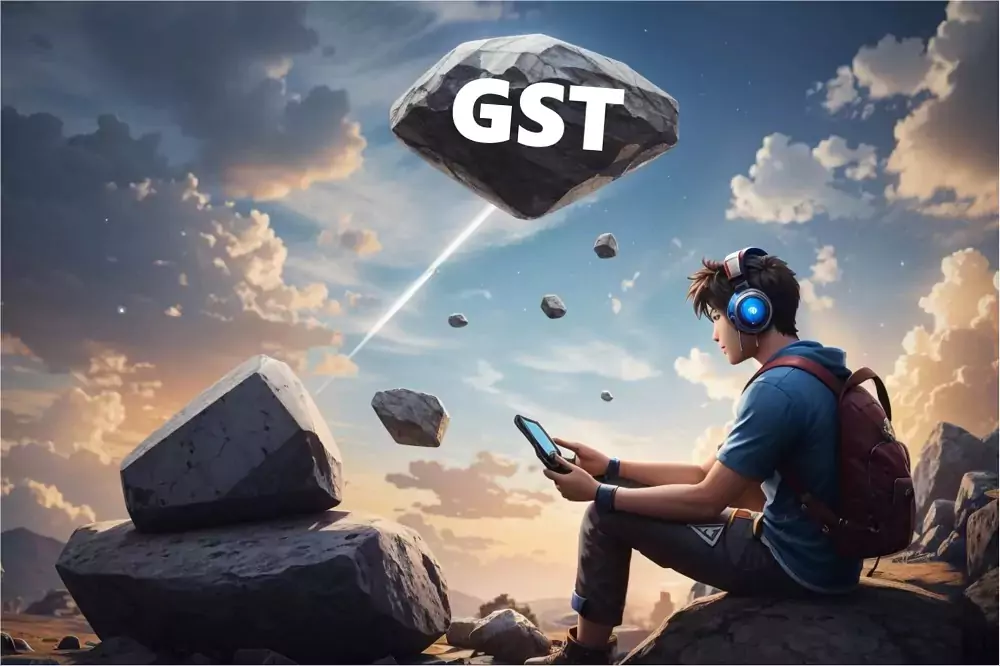In 2023, India experienced major changes in its tax policies, particularly in the online gaming sector. A new Goods and Services Tax (GST) rate of 28% on gaming has sparked widespread discussion and concern among developers, players, and industry stakeholders.
GST Implementation on Online Gaming
To implement this tax nationwide, at least half of India’s states, alongside the Indian Parliament, needed to pass the bill. So far, 18 out of 31 states have successfully passed the legislative changes required to enforce the 28% GST on online gaming, horse racing, and casinos.
According to Revenue Secretary Sanjay Malhotra, the remaining 13 states have also agreed to make the necessary changes to align with the new act.
This move is part of a broader effort to bring these forms of entertainment (as of gambling they mean) under the GST framework, ensuring uniform taxation across the country.
Concerns Raised by Opposition
Despite the government’s success in passing this legislation, the opposition has voiced significant concerns about its potential impact on the gaming industry.
During the recent 52nd GST Council meeting, Delhi State Finance Minister Atishi highlighted the risks posed by such a high tax rate. She argued that the 28% GST could have a severe impact on India’s ₹23,000 crore online gaming industry.
The industry, which has seen substantial startup investments, employs over 50,000 programmers, and provides job opportunities for millions of young people, faces the threat of decline under the weight of these new tax liabilities.
Atishi warned that such measures could discourage the youth from pursuing new ventures, potentially burying the emergence of the next big Indian startup. She demanded a reconsideration of this decision to safeguard the future of the online gaming sector.
The online gaming industry is on the brink of decline under the burden of new #GST #taxes: Finance Minister #Atishi raises an alarm.
India’s ₹23,000 crore online gaming industry, startup investments, and the livelihoods of over 50,000 programmers, as well as employment… pic.twitter.com/QdPLJkKOMr
— The Times Of India (@timesofindia) October 7, 2023
Government’s Response to Concerns
In response to these concerns, Finance Minister Nirmala Sitharaman acknowledged the issues raised by Atishi. She assured that the government would take steps to address the industry’s worries.
However, the central government did not confirm Atishi’s claim that tax notices amounting to ₹1.5 trillion had been issued to online gaming companies. The government clarified that these notices were issued by the Directorate General of GST Intelligence (DGGI), an independent agency.
Despite these assurances, online gaming platforms continue to express fears that the 28% GST rate will significantly threaten their sustainability and growth.
Balancing Taxation and Innovation
The implementation of a 28% GST on horse racing and casinos might be more easily justified, given their association with betting industries. However, applying the same rate to online gaming has raised concerns.
The gaming sector, along with artificial intelligence, machine learning, and electric vehicles, is seen as a “sunrise industry” with immense growth potential. While taxation is crucial for generating revenue, it should not suppress innovation or hinder the development of industries poised to drive future economic growth.
Update 1: Modi Meat With India’s Top Gamers
In a notable development, Prime Minister Modi met with some of India’s leading gamers on April 11, 2024, and discussed several pressing issues facing the gaming industry.
Known for his strong advocacy of ‘Digital India,’ the Prime Minister expressed his commitment to boosting the gaming industry by embracing and supporting the creativity of these young creators.
They also conversed about the fine line between gambling and gaming and the growing participation of women in the industry.
During the discussion, he emphasized that over-regulating the gaming industry would be counter-productive. Instead, he advocated for a balanced approach, suggesting that the government should avoid imposing stringent legal restrictions. Instead, he proposed bringing the gaming industry under a more organized and legal framework to enhance its reputation and encourage its growth.
Modi addressed key issues, yet quick implementation is important as the industry faces severe challenges in 2024 such as layoffs and shutdowns. Both the industry and government will need to work together to ensure that the sector continues to thrive while contributing to the country’s economic development.
For more gaming news and updates, be sure to subscribe to Gaming Foodle, your ultimate resource for everything gaming.
Discover more from Gaming Foodle
Subscribe to get the latest posts sent to your email.

